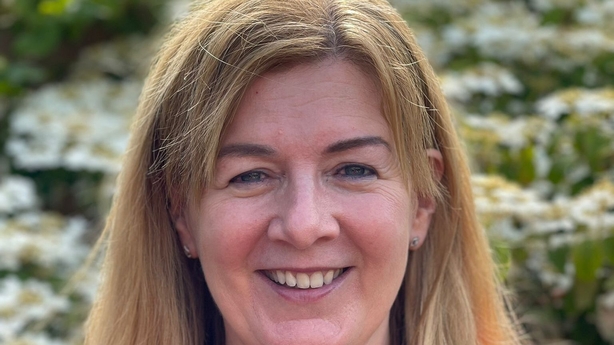The National Women's Council of Ireland is calling for a publicly funded system of early childhood education and care, alongside private services, as the "only solution" to the childcare crisis.
Several childcare providers have pulled out of the Government's core funding scheme in order to increase their fees.
This leaves parents in a situation where they agree to higher fees or look for other childcare options, including leaving work.
The NWC said it will be mainly women who make this decision.
Helen McGoldrick ran a pre-school service called KidStart in Lucan, west Dublin, for 22 years, but in June she decided to close for good.
KidStart provided two sessions per day of a three-hour preschool service to children aged between two years and nine months and five years old.
Ms McGoldrick said that for her business, core funding resulted in a financial gain to her business of just €35 per year, which she described as "an insult".
"The introduction of core funding was the beginning of the end," she said, adding that her workload also increased immensely.
Ms McGoldrick said she could not take the same time off during the summer that she had been able to and weekend and evenings were taken up by paperwork.

She said while she had been able to introduce children to KidStart gradually, she found she no longer had the time to allow them adjust before they went into groups.
Ms McGoldrick said KidStart had a full list for the next three years, but she has decided to stop before she is burned out.
"I have no idea what I'm going to do, but I know whatever I do will give me a better work-life balance than what I had."
She added: "I thoroughly enjoyed working with the children. I enjoyed working with the parents, but my work life balance just was taking the hit."
NWC care officer Eilish Balfe said a public system of early childhood education and care, akin to the primary school system is not an "overnight solution".
However, she said, "it is the only sustainable solution for the future. In 2021, the Government spent €638 million on childcare, and in 2024 they spent €1.1 billion.
"Despite doubling the investment, the crisis keeps growing. They need to change tactics."
The NWC estimates a publicly-funded system of early childhood education and care would cost taxpayers €1.6 billion by 2030.
The organisation is asking the Government to pilot a public scheme as part of Budget 2025.
We need your consent to load this rte-player contentWe use rte-player to manage extra content that can set cookies on your device and collect data about your activity. Please review their details and accept them to load the content.Manage Preferences
Speaking on RTÉ's Morning Ireland, Ms Balfe said the NWC would like the State to see a publicly funding system of early childhood education and care "as an investment".
"It will pay back dividends in terms of wages ... and women's equality," she added.
"It would be for the public good."
She added it would also allow women to return to work when they want to rather than be dependent on whether or not they can afford childcare.
"We've been contacted by a lot of parents this month especially," Ms Balfe said, "that have received letters from care providers saying that they are pulling out or that they may pull out of core funding."
For those services that have said they will put out of core funding, they are expecting to raise their fees by between 20% and 40%.
Day care facilities have an annual budget that goes from September to August.
Ms Balfe described the situation as "volatile".
"We need a sustainable situation where parents just know that they have their childcare place if they need it."
The Department of Children has said that so far just 20 services have withdrawn from core funding.
It said that core funding represents a significant increase in investment in the early childhood education and care sector, with €259 million of funding paid directly to services in year one.
This rose to €287m for year two and will increase again to €331m for year three.
Approximately 95% of providers signed up to core funding in each year it has operated.
For this year, more than 3,300 (73%) have either started or submitted their core funding application, the department said.
An upper limit of €33.30 has been placed on any approved fee increase by the department for any facility that is in core funding. However, the Department expects that most increases will be less than this.







